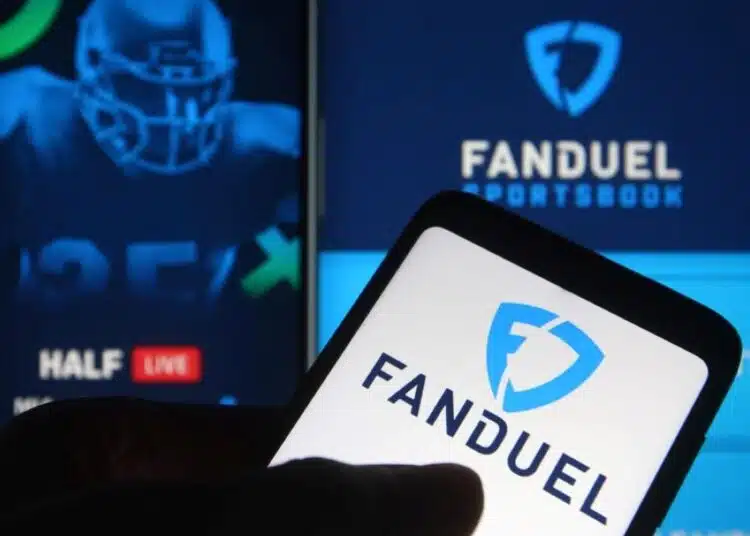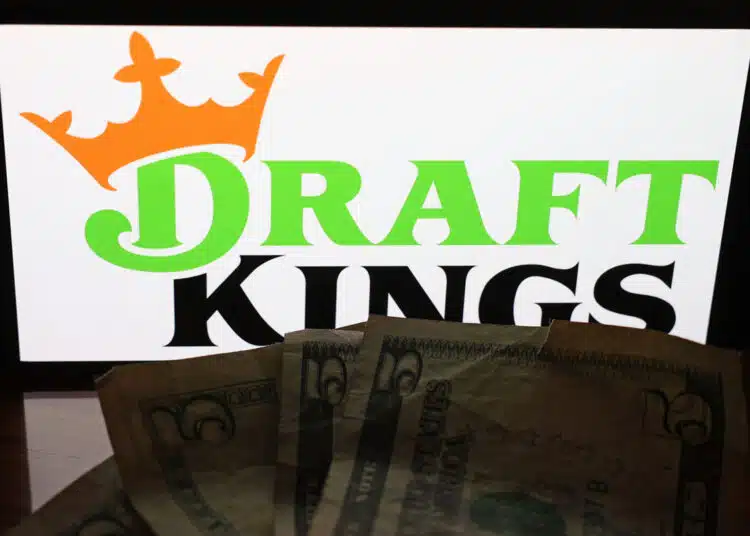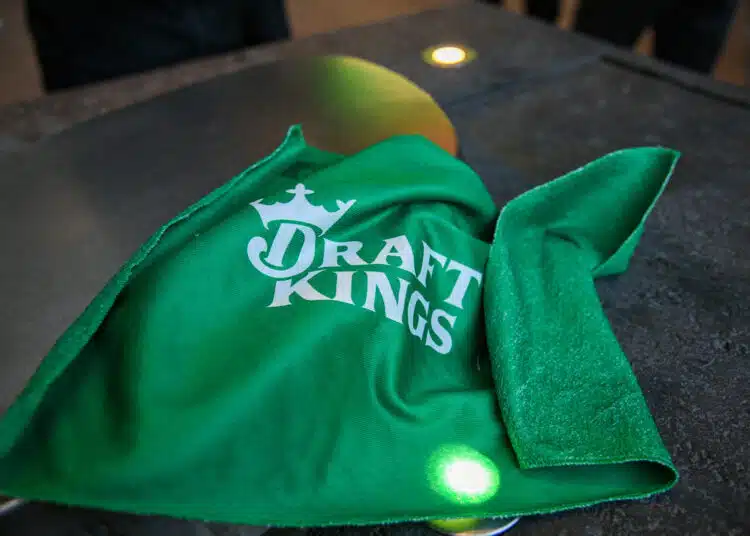If gambling operators could have set a line on the first question asked at Tuesday’s Flutter quarterly earnings call, one choice likely would have been the heavy favorite.
As expected, an analyst opened the question-and-answer section by pressing Flutter CEO Peter Jackson on whether FanDuel planned to follow DraftKings‘ lead and institute a proposed surcharge on select winning bets. On Aug. 1, DraftKings unveiled a bold proposal to impose a small fee on bettor wins in four high-tax states. In response, Jackson emphasized that Flutter had a good deal of “patent recognition” internationally in jurisdictions with elevated tax rates. Historically, Flutter replied by “moderating generosity” in those areas through a reduction in levels of local marketing and promotions.
As it relates to FanDuel, Jackson noted that the company planned on drawing from the same playbook, insisting it wouldn’t impose the surcharge. By 6:04 p.m., less than 90 minutes later, DraftKings abruptly pulled the surcharge proposal, which unleashed a firestorm on social media. As of Thursday morning, the post from DraftKings received approximately 2.5 million hits.
When the dust settled, the industry shifted its focus to the immediate impact on customer relations, pricing, and the tax environment for commercial sportsbooks around the nation. With elevated tax rates, the country’s top sports betting operators will likely be challenged to maintain reasonable margins. As operators look to offset higher tax burdens, there may be an adverse effect for bettors in the form of unfavorable prices.
State Tax Revenue Of $654M … And Change
As with DraftKings, Flutter expressed criticism toward Illinois officials for a new progressive tax policy that took effect on July 1. Under the policy, Illinois established a tier system with a tax floor of 20% for the lowest-generating operators. The system contains various step-ups, based on revenue thresholds, with the highest tier at 40% of an operator’s gross gaming revenue (GGR). The state previously imposed a 15% tax on sports betting GGR.
Flutter emphasized that the tax change will lead to a projected headwind of $40 million this year. Flutter projects the increase will create a gross impact of -$50 million, an amount offset by a $10 million initial migration. Moving forward, Flutter management intends to mitigate the tax burden by 50% from optimized promotions and reduced marketing, Truist Securities analyst Barry Jonas wrote in a research note.
If FanDuel attains market-share gains, Jonas adds, the improvement could drive further mitigation. DraftKings may offset the Illinois rates by adjusting their pricing, Jonas proposed, though he predicts it has “less room” than FanDuel.
On Thursday, the American Gaming Association released commercial gaming revenue trends for the second quarter of 2024. Americans wagered about $31.8 billion at legal sportsbooks in the quarter. That generated $3.2 billion in revenue (an increase of 35.3% year-over-year). Based on those figures, U.S. states took in at least $654 million in tax revenue, with Arizona yet to report. The nationwide blended tax rate came in at 20.7%, according to Sports Handle research.
Beyond Illinois, DraftKings considered the proposed surcharge in three other states — New York, Pennsylvania, and Vermont. Despite the change, the Illinois duty pales in comparison to New York which has a nation-high 51% rate.
As a thought exercise, if New York had the same 15% rate as Illinois, the state would have received about $187.5 million less in state coffers. Consequently, the nationwide blended tax rate would have declined to 14.9%. While more than 35 states have legalized sports betting, it is not available in California and Texas, the two most populous states in the country.
Customer Elasticity
Some analysts weren’t caught off guard by DraftKings’ policy reversal. In retrospect, Jeffries analyst David Katz described the proposed surcharge as a “head fake” and said the initiative was intended to “spark debate and awareness, rather than recoup margins.” For its part, DraftKings wrote that after listening to customers the company decided it was in its best interest to withdraw the proposal. DraftKings CEO Jason Robins likened the fee to ones that are common in the hotel and taxi industries. Had Flutter imposed the surcharge, Illinois customers would have lost a percentage of their winnings from the nation’s top two sportsbooks.
Another analyst, Robin Farley of UBS, asked Flutter’s Jackson if he viewed DraftKings’ initiative as an attempt to prevent further states from following Illinois’ lead. Neither California nor Texas have telegraphed a potential tax rate in their respective states. But since the nation’s two most populous states comprise about 20% of the nation’s population, a sliding tax scale would come at the detriment of FanDuel and DraftKings. If the two market leaders passed the costs to customers, neither would be at a competitive disadvantage, she explained. Jackson disagreed, without expounding further.
The compelling debate dominated the final two days of discussions at The Racing and Gaming Conference At Saratoga. Ahead of Flutter’s earnings call on Tuesday afternoon, a financial analyst accurately predicted that DraftKings’ policy decision hinged on FanDuel’s response. While several other sportsbooks decided not to impose the charge, the two industry behemoths each represented a “500-pound gorilla in the room,” he told Sports Handle.
On Tuesday evening, an executive indicated that DraftKings risked losing the trust of customers with proposing a fee, then immediately pulling it back. At the same cocktail party, another questioned if DraftKings simply floated a “trial balloon” to see how FanDuel would react. The following morning, a former regulator concluded that DraftKings’ reversal is a reflection of customer elasticity. Asked by ESPN if a small surcharge would prompt bettors to leave their preferred sportsbook, more than 80% responded that they would not stay. Of the 4,873 respondents, only 5% planned to remain on the site and 14% said they’d wait on the exact fee.
Robins characterized the proposed surcharge as “nominal” — one that likely would have been in the low single digits. According to a DraftKings’ earnings presentation, bettors could have faced a 32-cent surcharge in Illinois on a $20 payout, a rate of 1.6%.
Full-Year Guidance Lifted
Flutter reported U.S. Adjusted EBITDA of $260 million on the quarter, an increase of 51% year-over-year. FanDuel continues to make improvements with its proprietary product offering, which drove the proportion of its live betting handle by more than 4% over the previous year’s NBA Finals, Jackson said. He is also pleased with penetration rates with MLB in-game parlays.
Flutter now expects full-year profit of $680 million to $800 million at FanDuel. That’s up from previous estimates in March of $635 million to $785 million. Last year, FanDuel reported earnings of $167 million and became the first U.S. sportsbook in the PASPA era to generate a full year of profitability.
“The returns we are seeing give us the confidence to continue driving customer acquisition in the second half, building a bigger business, which bodes well for 2025 and beyond,” Jackson added.
Both gambling giants posted gains Wednesday in response to the surcharge news. Flutter surged $15.49 a share (8.1%) on Wednesday to $206.88 a share. The company is up by approximately 15% since its debut on the New York Stock Exchange in January. DraftKings rose about 2% to close at $32.06 a share.





